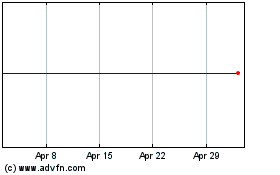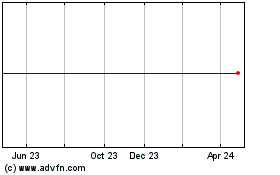By Deepa Seetharaman and Byron Tau
Facebook Inc. is suddenly in the crosshairs of lawmakers pushing
to crack down on exemptions that allow social-media companies to
operate beyond the norms of political campaigns.
Congressional leaders and other groups are starting to discuss
legislation that would require social-media companies to create a
public disclosure portal of political ads shown on their platforms,
similar to the requirements of television and radio stations. The
increased scrutiny follows Facebook's disclosure in September that
Russian entities spent a total of $150,000 to buy more than 5,200
ads with divisive political messages during the U.S. presidential
campaign.
Separately, Democrats are pushing the Federal Election
Commission to create new rules that would curb the ability of
foreigners to spend money on political advertising.
On Wednesday, 20 congressional Democrats encouraged the FEC to
"take immediate steps to understand the threats posed to our
democratic process by foreign influenced internet and social media
advertisement."
"We're open to reviewing any specific congressional proposals,"
a Facebook spokesman said. "We are looking into more ways to
address ad transparency on our platform," he added.
A Twitter spokeswoman said company officials would meet Senate
staffers next week to discuss the 2016 election. "Twitter engages
with governments around the world on public policy issues of
importance and of interest to policy makers," she said.
Tech firms such as Facebook and Twitter Inc. are subject to
looser disclosure requirements than traditional media, such as
television and radio stations, which must publicly disclose
campaign ads they broadcast.
Facebook removed hundreds of Russian accounts that purchased the
ads, resulting in the deletion of some ads.
Video advertisements that appear on social media also aren't
bound by the "Stand By Your Ad" provision requiring candidates in
their own voice to take responsibility for the ads their campaigns
run -- usually in the form of a candidate "approving this
message."
Facebook briefed Senate and House staffers earlier in September
on the Russian ads, showing half a dozen ads to the groups before
retrieving all the material in the presentation, people familiar
with the meetings said. Facebook shared more detailed records with
Special Counsel Robert Mueller, including copies of the ads,
details of the accounts and targeting criteria, according to people
familiar with the matter.
Holding social media to the same standard as broadcasters
wouldn't necessarily have stopped Russian ads from appearing on
Facebook, experts say, because most of the ads paid for by Russian
entities didn't mention the election, voting or either
candidate.
For instance, one ad promoting an anti-immigration rally in
Idaho in August 2016 railed against "Obama's treacherous
immigration policy and further resettlement of refugees from Muslim
countries." The ad didn't directly address the issue of immigration
within the context of the campaign. (The rally was canceled on
Facebook.)
"It's going to be hard to regulate in this area," said Nate
Persily, a Stanford professor who studies election law. "But it's
clearly the frontier."
The last time campaign-finance laws were broadly overhauled was
in 2002, long before the rise of social media, online fundraising
and other hallmarks of modern political campaigns. As a result,
most of the regulations are designed for the radio and television
era.
"Traditional brick-and-mortar platforms like radio and
television don't have the same protections that the internet
companies do," said Albert Gidari, director of privacy at Stanford
Law School's Center for Internet & Society.
Social media also makes it easier for campaigns to raise money
from small donors. Under federal law, small donations under $200
don't need to be reported in public filings.
Wednesday's letter from Democrats to the FEC, organized by Sen.
Martin Heinrich (D., N.M.), Rep. John Sarbanes (D., Md.) and Rep.
John Conyers (D., Mich.), also sought "new guidance on how
advertising platforms can better prevent foreign nationals from
illicitly spending in future U.S. elections." It is unclear whether
foreigners used social media to make political donations.
Top Democrats on the Senate Rules Committee and the Senate
Intelligence Committee are behind the effort to impose equal
disclosure requirements on social-media ad purchases that the
Federal Communications Commission imposes on broadcasters.
Though discussions are preliminary, one proposal would require
social-media companies to establish a public repository of
political advertisements on their platforms, according to
Democratic aides familiar with the deliberations. Hill Democrats
are also considering whether to make the companies disclose the
targeting criteria that political organizations are using to reach
voters with each ad, aides said.
Ad buying on Facebook is done on a self-service platform where
the advertiser can target small, specific groups of users.
Rebecca Ballhaus contributed to this article.
Write to Deepa Seetharaman at Deepa.Seetharaman@wsj.com and
Byron Tau at byron.tau@wsj.com
(END) Dow Jones Newswires
September 21, 2017 05:44 ET (09:44 GMT)
Copyright (c) 2017 Dow Jones & Company, Inc.
Twitter (NYSE:TWTR)
Historical Stock Chart
From Mar 2024 to Apr 2024

Twitter (NYSE:TWTR)
Historical Stock Chart
From Apr 2023 to Apr 2024
